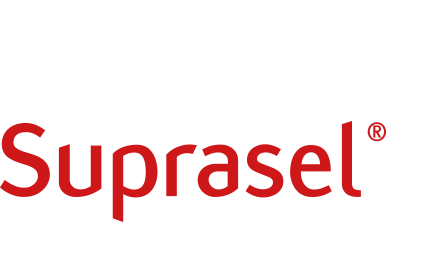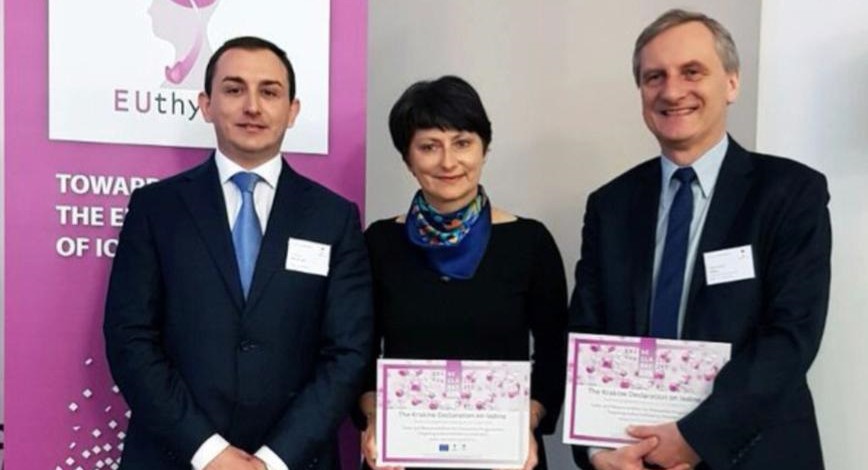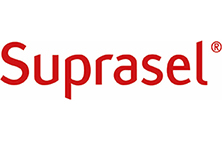Nyhedsartikel

Iodized salt: critically important for our health
onsdag, 10 oktober, 2018
Iodine is an important micronutrient for human and animal health. Many people across the world however, do not have any or limited access to iodine. Iodized salt is one of the most successful ways to supply iodine to the population. Iodine deficiency can lead to various critical health conditions, especially in the fetus and in young children. Suprasel asked Attilio Caligiani, Director General of the World Iodine Association, what a shortage of iodine means for the world population and how salt can help to prevent this.
Attilio Caligiani is the Director General of the World Iodine Association (WIA). This is a non-profit organization representing the interests of the iodine value chain – from producers to users – towards industry and governmental bodies.The association acts as a central information platform about the various uses of iodine in human and animal health and nutrition, as well as industrial applications. The WIA has a clear mission: to eradicate iodine deficiency disorders globally. WIA’s members are, among others, large corporations, SMEs (small and medium-sized enterprises) as well as associations from America, Europe and India. As one of its key objectives, WIA also advocates a balanced and optimal iodine nutrition as part of the future public health strategy.
What is iodine and why is it so important?
“Iodine is an essential micronutrient that comes from the food we eat and the water we drink. It is essential for optimal growth development in human fetuses and small children. Iodine is an essential constituent of thyroid hormones. 80 percent of the iodine in the human and animal body is found in the thyroid gland. Iodine deficiency disorders (IDD) occur when iodine is not sufficiently present in the diet. A mild deficiency can cause mental and physical retardation in humans. More severe effects of IDD include goitre, which is a swelling at the front of the neck caused by the increase in size of the thyroid gland. Abnormal physical development and reproductive loss can also occur. However, the iodine content in diets needs to be balanced. Too much iodine can also compromise thyroid function.”
What is the importance of iodine in salt?
“Iodine in itself is found in certain foods such as sea fish, dairy and eggs. In addition to that, iodine is often added to salt. Iodized salt is frequently used in bakery products and meat. In these cases, salt is used for the fortification of these foods. Iodized salt is used as table salt and for food preservation, and its use in bread production in the form of potassium iodide or potassium iodate is one of its oldest, widely known applications.
As a result of the salt-iodization programmes, approximately 70% of households worldwide use iodized salt, ranging from almost 90% of households in South America to less than 50% in Europe and the Eastern Mediterranean regions. Adding iodine to salt is a very cost-effective way to fortify food and as a result, to decrease chances of IDD. Moreover, salt is a product that many people use every day. Iodized salt is available in supermarkets as standard table salt.
In the United States and Europe, salt manufacturers have been adding iodine to table salt and salt for use in food applications since the 1920s. Nowadays, more than 100 countries support salt iodization programs.
For food fortification purposes, there is no difference between rock, sea and vacuum salts, all of them can be used. In order to contribute significantly to the daily intake of iodine, each kilogram of salt should be manufactured with 20 to 30 micrograms of iodine.”
What is the trend in global salt production?
“The global salt consumption is decreasing”, says Caligiani. “The medical community for example agrees that in order to prevent cardiovascular disease, the overall intake of salt needs to decrease. Even though people tend to consume less salt, the number of people that consume salt is increasing. However, a balance between consuming less salt and getting enough iodine from salt remains necessary. Governments play a crucial role in ensuring this balance.”
How much iodine should adults and children consume daily?
“The recommended intake of iodine is 150 micrograms a day for adults and 250 micrograms a day for pregnant and lactating women. Children should consume 90 micrograms a day. It does not really matter where this iodine comes from. What really matters is the correct amount that people consume.”
Is IDD only an issue in the developing world?
“Absolutely not”, stresses Caligiani. “IDD affects 50% of new-borns across Europe. WIA aims to decrease this alarmingly high number. The heart of the problem is that IDD progressively faded out of the policy agenda. Politicians wrongly considered it to be an irrelevant problem, that only occurred in the developing world and not in Europe. However, in Europe, there are at least ten countries that are considered to be mildly iodine deficient, among which are Norway, Sweden, Italy, France, Denmark and Spain. Despite these countries’ geographical positions, near the sea, fish may not be a part of the population’s diets as it is in Japan. In Japan, people also consume a lot of seaweed, which is an excellent source of iodine. Iodine is also present in water, but concentrations may vary according to the exact location in the country. For example: in Copenhagen, the concentration of iodine in water is higher than in the north of the country.
Does geography matter in the case of iodine intake?
“The amount of iodine that is consumed varies between geographic areas and is influenced by local eating habits. IDD is more common in regions that do not border on the sea. Two of the sources of iodine are sea fish and sea weed. These products are important for the dietary industry. The Netherlands for example is a country that is not significantly affected by IDD, because of its location near the sea and the fact that people have access to iodine-rich products. In the Netherlands, the government also supports a salt iodization program. The same goes for Japan. In some African countries however, IDD is very prevalent.”
Salt iodization is one of the measures advocated in the Krakow Declaration on Iodine. What is the aim of this declaration?
“The Krakow Declaration on Iodine was published on April 18, 2018 and endorsed by stakeholder organisations representing the scientific, medical and patients community as well as the industry. The document points out the responsibilities of the European policy-makers to prevent and tackle IDD creating a favorable European regulatory framework for the implementation of the solutions proposed in the Declaration. WIA was instrumental in advocating the Declaration across Europe. 67 National and international organizations signed the Krakow Declaration. All of the parties that signed the Krakow Declaration ask for support from Europe and beyond to ensure that our future generations are not held back by IDD. In particular, they call for methods of IDD prevention, such as salt iodization and the free trade of fortified foods across Europe. The parties also ask for support for IDD prevention. Scientists, together with the medical community, patient organizations and industry, should support measures necessary to ensure that IDD prevention programs are appropriate within a rapidly changing environment and further social awareness about the issue. It is very important that organizations that agree on the importance of preventing IDD sign the Krakow Declaration. They can find all the information they need on this website.”
From left to right: Attilio Caligiani, Director General of the World Iodine Association – Professor Alicja Hubalewska-Dydejczyk, professor at the Jagiellonian University Medical College – Polish Deputy Minister of Health Zbigniew Krol.
How will WIA ensure IDD awareness in the future?
“Communication is an essential part of IDD-prevention. By now our organization has a global outreach. We need to stress the benefits of iodine and in which products iodine can be found. For example, if you are vegan, you do not eat meat, eggs or fish and you do not drink milk. It essential that you know how to consume enough iodine through salt and bread.
The food industry, as well as governments can also help to promote the intake of iodine, for example by targeted communication about this subject on a national and international level.






